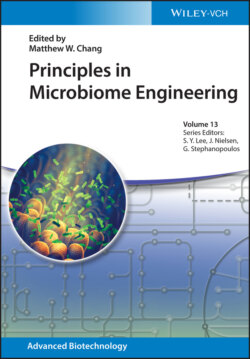Читать книгу Principles in Microbiome Engineering - Группа авторов - Страница 29
1.2.1.4 Lipids
ОглавлениеFat‐rich diets including saturated fats from animal foods negatively affect the gut microbiota, leading to poor metabolization of the nutrient and ultimately leading to obesity. Studies involving murine models showed depletion of Bacteroidetes and Bacillus bifidus abundance and enrichment of Firmicutes and Mollicutes in mice fed with a high‐fat diet [93]. However, such effects on the microbiome are less severe in mice fed with moderate amounts of polyunsaturated fats such as omega‐3, omega‐6, and omega‐9 [94]. Similarly in human studies, a high‐fat diet increases the abundance of anaerobic microbes and Bacteroides [95, 96]. Patients adapting a low‐fat diet showed the increased fecal abundance of Bifidobacterium and decreased proportion of Faecalibacterium prausnitzii [95]. Table 1.4 summarizes the effect of dietary fat on the gut microbiota.
Table 1.4 Effect of dietary fat on gut microbiota.
| Lacticacid bacteria | Bifido bacteria | Clostr idiales | Bacter oides | Bilo phila | Faecalibacterium prausnitzii | Akkermansia muciniphila | References | |
|---|---|---|---|---|---|---|---|---|
| High fat | ↓ | ↑ | ↑ | [70, 95, 97, 98] | ||||
| Low fat | ↑ | [95] | ||||||
| High saturated fat | ↑ | ↑ | ↑ | [95, 96] | ||||
| High unsaturated fat | ↑ | ↑ | ↑ | [95, 99] |
Lactic acid bacteria include Lactobacillus and Streptococcus.
Source: Based on Walker et al. [92].
